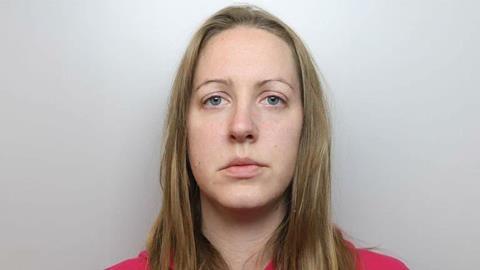The CEO of Prison Fellowship believes that no one is beyond hope. But when heinous crimes are committed, that slogan is tested. What does justice look like when dealing with a convicted murderer? Peter Holloway explores

It’s often forgotten that our criminal justice system was established for three purposes - 1) to punish 2) to rehabilitate offenders and 3) to protect the public.
When it comes to people who have committed particularly heinous crimes, society tends to focus solely on punishment.
When we ask how society should respond when crime is committed, we tend to ask just one question: "What does the offender ‘deserve’?" This is a natural human response to the pain we feel - either directly, as victims of crime, or vicariously, through feeling the grief of others.
I was once asked on a television show panel whether I’d be able to forgive someone who killed one of my relatives. I could only reply that I hoped so but that, honestly, I didn’t know. Until we are individually faced with such mountains to climb, we dare not preach to those who are looking at that sheer face of rock with tear-streaked faces.
Our prison system is built around ‘retributive justice’, where the seriousness of the sentence handed down is intended to mirror the seriousness of the offending act, hence a judge deciding that Letby will spend the rest of her life in prison.
Forgiveness and justice
As Christians, we do believe in a God whose love is unbounded. His love extends to everyone equally. The very nature of divine grace is that it is unmerited and given without favour.
In the Gospels, Jesus never seeks retribution or a like-for-like response to wrongs. As his followers, this has huge implications for us today when it comes to how we should understand justice.
The Hebrew word that we often translate as ‘justice’ originally also contained the idea of mercy. So, in God’s economy of grace, we must see justice and mercy as coexisting together. This is exemplified in Micah 6:8: “And what does the Lord require of you? To act justly and to love mercy and to walk humbly with your God.”
A Christian response, then, is to talk about justice and mercy together.
Jesus never sought retribution or a like-for-like response to wrongs
Prison Fellowship volunteers go into prisons across England and Wales. We do so to show Christ’s unconditional love to everyone there. Our strapline is: “We believe no one is beyond hope.” This statement often provokes the response: “What, even them?”
Some of our volunteers have experienced serious crime themselves, even losing loved ones at the hands of people who are now in prison. Despite this, week after week, they go into prison to tell their stories as a part of our restorative justice and victim awareness programme, based around the biblical story of Zacchaeus.
Restoration and rehabilitation
Restorative justice is the biblical model of justice; it does not seek to replace the state’s criminal justice system (retributive justice), but to complement it. It does not mean ‘a return to the past’, where we pretend that no crime has been committed. In fact, restorative justice urges us to move forward and enable possibilities for transformation.
The criminal justice system focusses on violation of the law. This emphasises guilt, which leads to punishment. In a restorative process, we see that crime is also a violation of people and relationships, and this violation creates obligations. Justice therefore involves victims, offenders and community members in an effort to ‘put things right’ as much as possible. The central focus is on the needs of the victim and offender’s responsibility for repairing harm.
In God’s economy of grace, we must see justice and mercy as coexisting together
When Jesus saw the tax collector, Zacchaeus, (Luke 19:1-10), he doesn’t put Zacchaeus down or join the crowd in accusing him. Instead, Jesus goes to his home, shares a meal with him and treats him well. Because of this expression of love and friendship, Zacchaeus’ heart is touched and transformation becomes possible. This leads to Zacchaeus committing to making reparations for the harm he has committed.
A transformed life
At the end of Prison Fellowship’s six-week Sycamore Tree course, people in prison are given the opportunity to make a personal response to victims and the wider community. This may be the first step that those people take towards a transformed life away from crime.
I have often been challenged by those who think that visiting people in prison is a waste of time. Nothing could be further from the truth. At some point, most people will leave prison and, when they do, we want them to lead transformed lives away from crime. As Prison Fellowship volunteers, we can play our part in that process through modelling the way Jesus turned away from the crowd, befriended Zacchaeus and simply showed him unconditional regard and love. We believe people can change.
In Prison Fellowship, we believe that if we are truly followers of Christ, we are compelled by love to follow his pathway of peace and restoration. We are inspired by Christ’s teaching. “‘When I was in prison you came to visit me’…They will answer, ‘Lord, when did we see you…in prison?…The King will reply, ‘Truly I tell you, whatever you did for one of the least of these brothers and sisters of mine, you did for me.’” (Matthew 25:40).


































1 Reader's comment